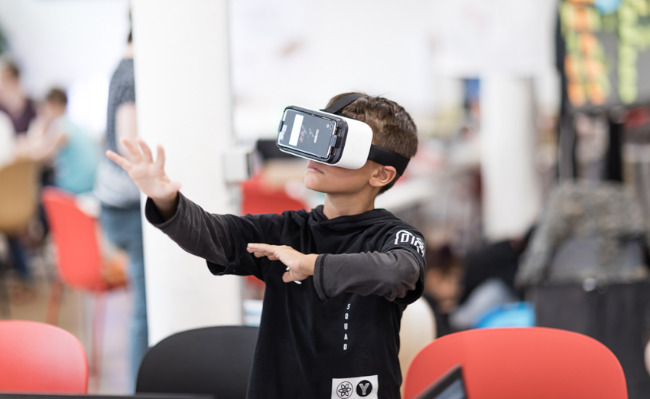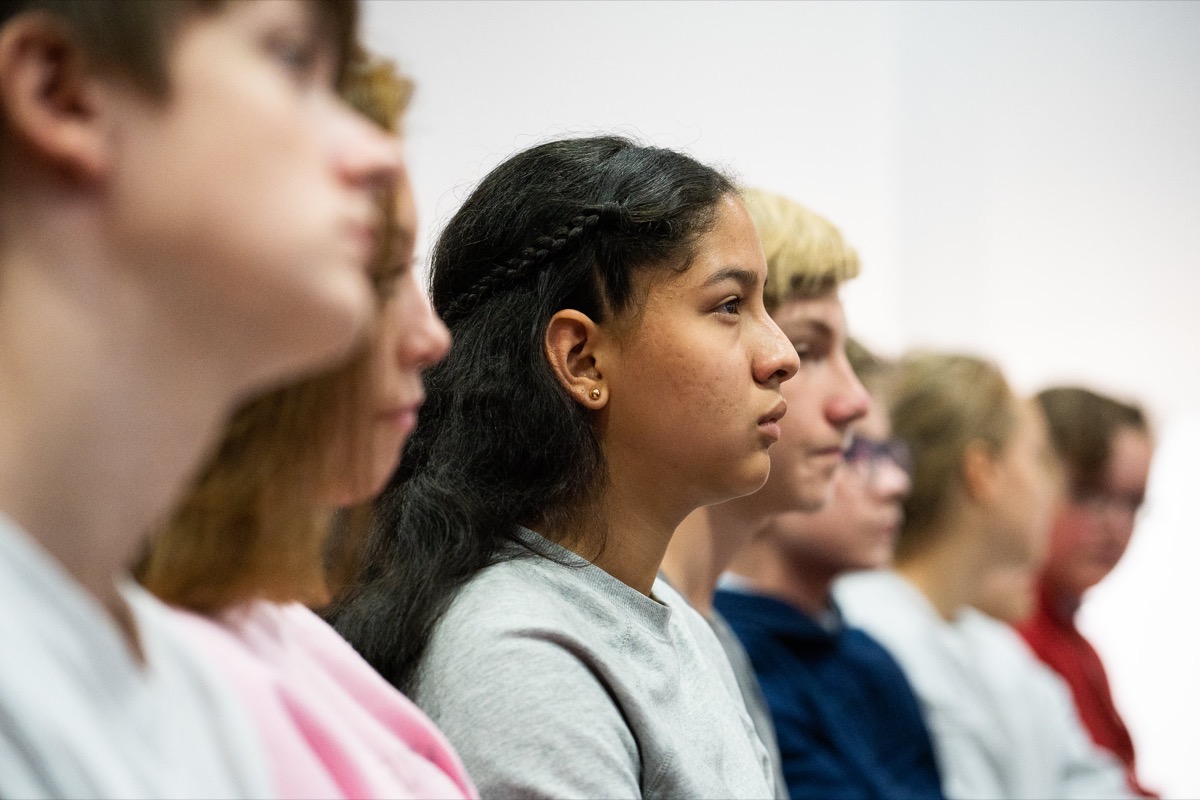Beyond the Pandemic – Fostering Digital Education for the 21st Century
Recommendations submitted by the Vodafone Germany Foundation for the public consultation on the new Digital Education Action Plan
Education during the pandemic
The Covid-19 crisis has taken an unprecedented toll on education. In Europe alone, around 58 million primary and secondary school children were affected by school closures and did not have access to face-to-face teaching for at least several weeks from March 2020 onward. The lockdown led to learning losses across the board, because remote learning – as it was practiced during lockdown by the majority of schools – was less effective than face-to-face teaching and students overall spent less time with learning and were more distracted or stressed by the whole situation.
In addition to overall learning losses, the pandemic increased inequality in education and accelerated the digital gap already existing in European societies. Survey data from Germany illustrate this: While some form of education reached most school children in Germany the quality varied to a great degree. For example, 80 % of pupils in Germany received exercises and worksheets via e-mail at least once a week during school closures but only 7 % were taught via videoconferencing on a daily basis. Only a third of teachers reported that their school was well prepared to move to remote learning. Piling on existing differences in the education system, the upper tier of secondary schools in Germany (Gymnasium) was much more likely to offer teaching via videoconferencing and in general was better prepared and equipped to move to online teaching than all other schools. In the hustle to move to remote learning, many students fell through the cracks. Only one third of teachers reported that they reached all of their students with distance learning methods. Ten per cent reported to have reached less than half of their students or even none at all. More than half of all teachers were concerned that school closures increase the influence of parents on educational outcomes, putting students from lower socioeconomic backgrounds at a disadvantage.
Both – educational inequalities and an increased digital gap – will have severe consequences for economic opportunities, social cohesion and welfare systems long after the pandemic has ended and thus need to be addressed promptly.
While the sudden need to move to online teaching and learning was in no way predictable, it exposed a general lack of preparedness for the digital transformation of education in Germany and many other European countries. Lack of connectivity, hardware, software and digital skills especially on the side of the teachers hindered the effective delivery of distance learning during the pandemic. Looking forward, this also makes these schools ill equipped to convey essential skills for participating in an increasing digital labour market as well as a digital society.
Although national governments are the first responsible to prepare their education systems for the digital age, the European Union can make a vital contribution by coordinating, supporting and complementing member states efforts. The renewal of the EU’s Digital Education Action plan therefore comes at a crucial point in time. In light of its expertise on and experience with digital education in Germany, the Vodafone Germany Foundation proposes the following actions to be included in the upcoming digital action plan.
Establishing distance and hybrid learning as an integral part of education
The move to distance learning during the pandemic has been sudden and without much precedent and evidence to draw from. Learning from this experience is, first of all, vital in order to navigate the coming school year which will be marked by uncertainty and in all likelihood by temporary local, regional or even national school closures. However, quality distance learning mechanisms should not merely be seen as a patch during the pandemic but as an integral part of any resilient and future-oriented education system. The possibility to take part in classes without being physically present as well as remote access to all learning materials should be the new standard making education more flexible, accessible, inclusive and effective.
Recommendation for the Digital Education Action Plan
What makes for a good distance-learning concept? How to best integrate students present in the classroom with ones participating from home? And how to avoid a digital gap between students from different backgrounds in the same class? There is an urgent need for guidance on these questions. The EU could contribute to the establishment of quality distance learning in the member states by sponsoring cross-national research and exchange and by developing European quality standards for distance and hybrid learning settings with a broad range of stakeholders. These quality standards would provide a useful framework and starting point for the development of country or school-specific guidelines and practices.
Quality distance learning mechanisms should not merely be seen as a patch during the pandemic but as an integral part of any resilient and future-oriented education system.“
Vodafone Germany Foundation
Building capacity around data protection in educational settings
Concerns about compliance with data protection legislation is a major barrier for the use of digital technologies in a school setting by teachers. Many do not know which digital tools they can safely use from a data protection standpoint in which circumstances. In Germany, this became especially pronounced during school closures with teachers either risking complaints and even fines for violating data protection standards or being unable to communicate with students appropriately as schools and educational authorities offered little official guidance on appropriate tools for remote education.
Recommendation for the Digital Education Action Plan
In order to lower the barriers for the use of digital tools in an educational setting while respecting privacy and data protection there is an urgent need for capacity building among teachers and principals but even more important among educational authorities. Although the application of the GDPR is somewhat different in each member state, the EU could create a hub for information, learning and exchange on GDPR in educational settings involving all areas of education from early childhood to lifelong learning and all governance levels. The hub should promote the value and application of GDPR in education and to this end contain target-group specific information materials and online courses. Furthermore, the EU could consider the feasibility of a labelling system to create more transparency on the conformity of specific digital tools for educational use with the GDPR.
… there is an urgent need for capacity building among teachers and principals but even more important among educational authorities.“
Vodafone Germany Foundation
Making digital media and information literacy a basic skill for EU-citizens
False or misleading information is abundant online. It has harmful effects on the public discourse and is widely seen as a risk to societal cohesion and democracy. The pandemic has amplified the phenomenon of pervasive disinformation: from dubious health advice to conspiracy narratives around the origins of the virus. Disinformation erodes trust in science and in political and public health measures to contain the virus and in some cases has even led to real world harm and violence.
A critical element in the fight against online misinformation is to strengthen digital media literacy – the ability to critically evaluate information online – among the general population. The Commission’s own high level expert group on fake news and online misinformation identified media literacy as one of five crucial action areas to limit the negative consequences of misinformation and make individuals and democracies more resilient towards it. There are many initiatives on media literacy by member states, educational institutions and civil society organisations, mostly targeting young people. However, the landscape is fragmented and, more importantly, media literacy is often not systematically included in school curricula. Moreover there are few quality resources with a wider reach among adults.
Recommendation for the Digital Education Action Plan
The Commission should make it a priority for the new Digital Education Action Plan to strengthen media literacy skills among EU citizens. Modelled on the successful “Elements of AI” the EU could offer online courses in all EU languages leading to a certificate on subjects such as the workings of social media algorithms, fact checking, evaluating sources and a foundational understanding of data based science. The courses should be designed with an ambition to reach a sizeable share of the population and could be integrated into the Digital Competence Framework for Citizens (DigComp 2.0) with its focus on information and data literacy. They should be complemented by new formats specifically designed for young people such as games, the promotion of media literacy by influencers or even an EU-wide fact-checking challenge.
… the EU could offer online courses in all EU languages leading to a certificate on subjects such as the workings of social media algorithms, fact checking, evaluating sources and a foundational understanding of data based science.“
Vodafone Germany Foundation
Creating an innovation community for digital education
Fast-paced changes in technology as well as unpredictable challenges, such as the COVID-19 pandemic, require not only new and creative uses of digital technologies for education but also curricula geared toward a broad set of 21st century skills. Recent hackathons supported by government in Germany (#WirVsVirus) including one dedicated to education (#WirFuerSchule) and in the EU (#EuVsVirus) have shown the immense grassroots potential for innovative digital solutions in education. At the same time, school systems have proven to be slow to scale innovative solutions and are characterised by high barriers of entry. As a result, many start-ups and promising solutions in the area of digital education do not succeed.
Recommendation for the Digital Education Action Plan
We propose the creation of a European Community for Innovation in digital education with the aim of bringing more start-ups and civil society initiatives in this area to scale and enable them to cross national boundaries. Starting from periodically staged EU-wide hackathons to harness grassroots ideas and initiatives, the community should build up a value chain for innovations by providing grants and loans, facilitating partnerships and training innovators and entrepreneurs. The European Institute for Innovation and Technology could play a key role here either as a model or as an administrator of the community.
The European Institute for Innovation and Technology could play a key role here either as a model or as an administrator of the community.“
Vodafone Germany Foundation








